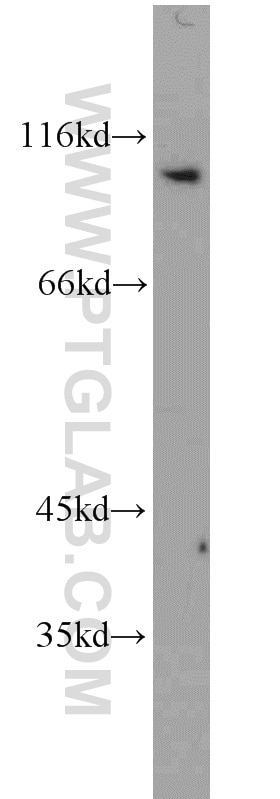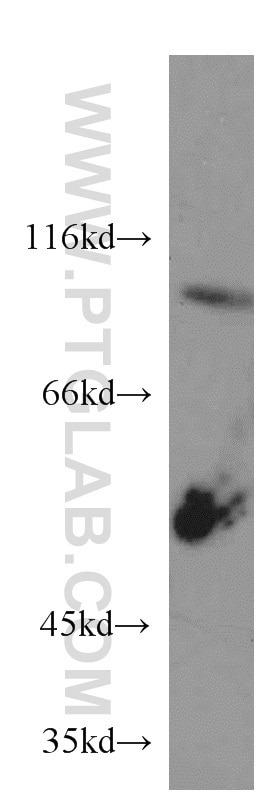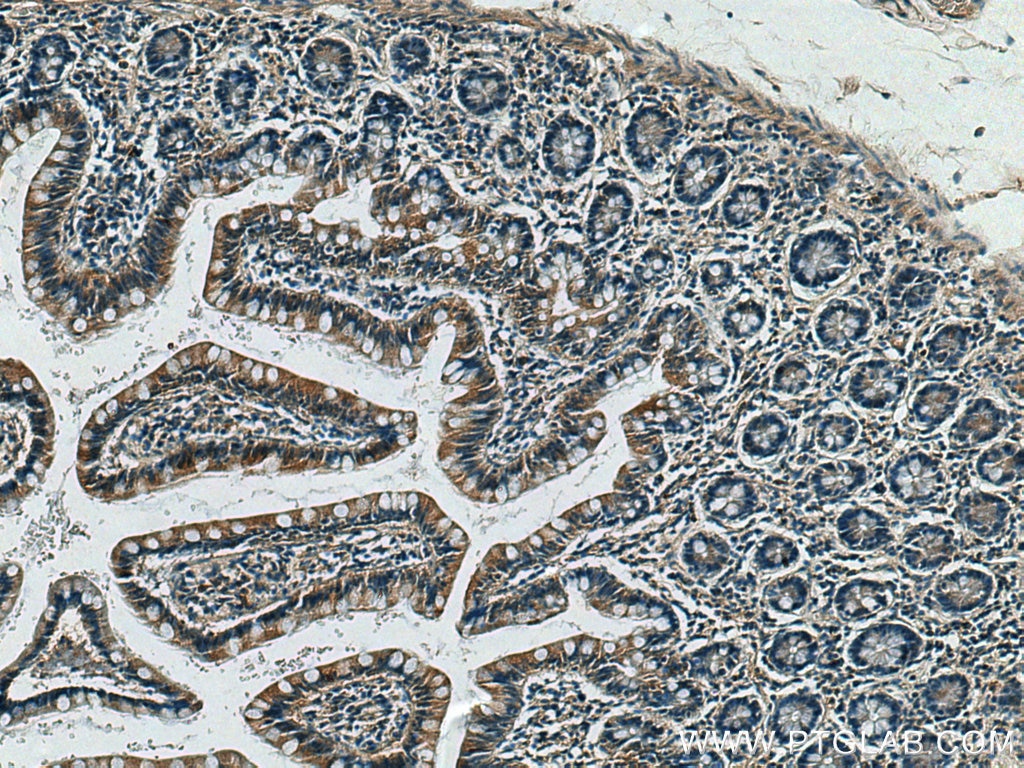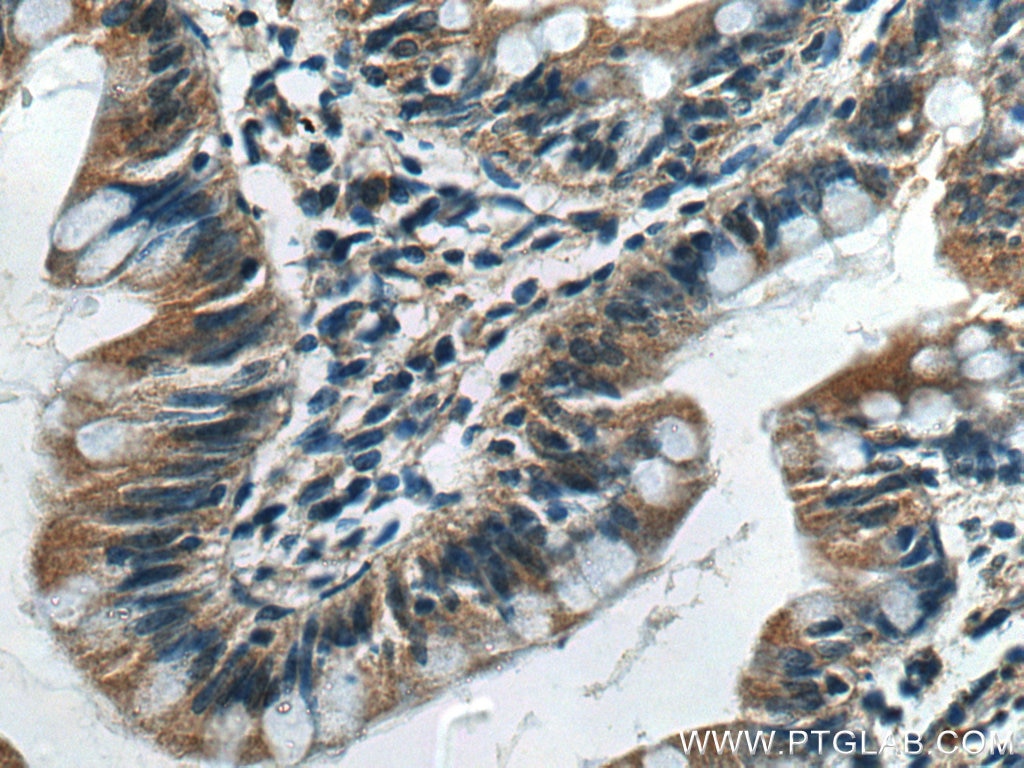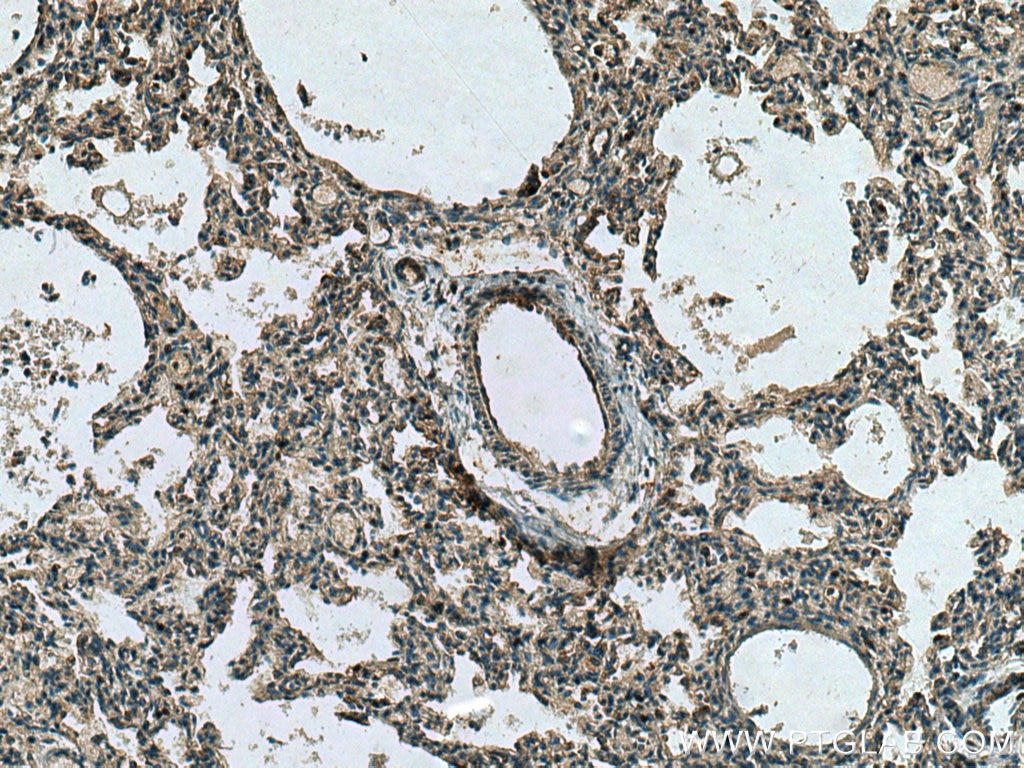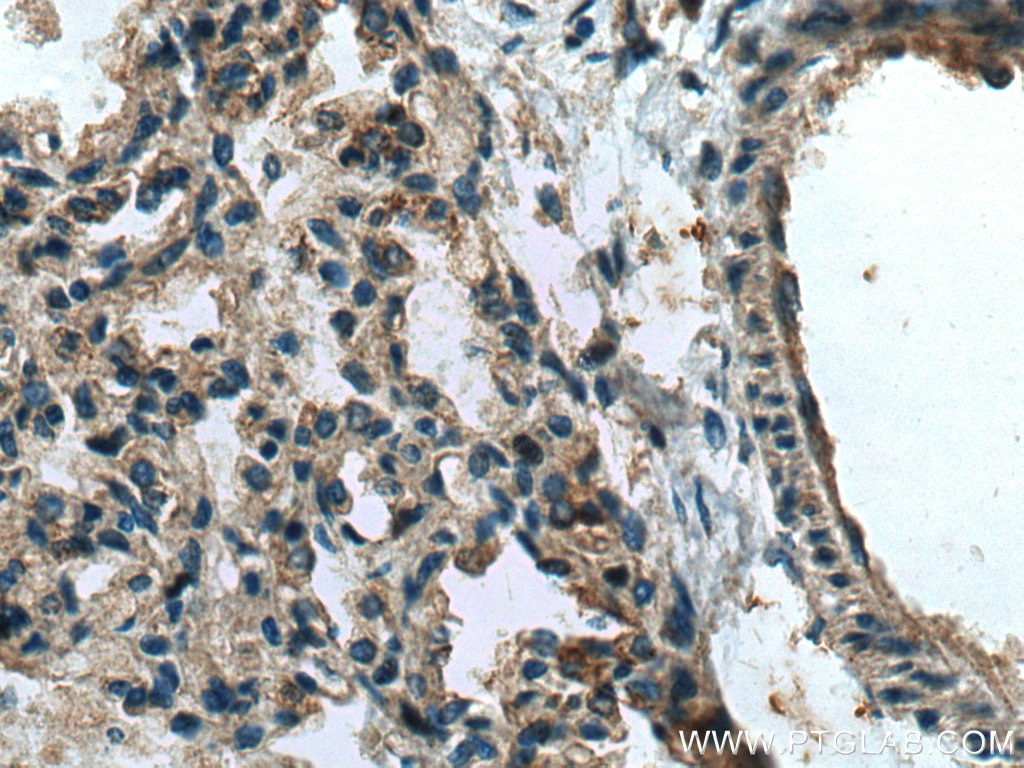Tested Applications
| Positive WB detected in | PC-3 cells, human brain tissue |
| Positive IHC detected in | human small intestine tissue, human lung tissue Note: suggested antigen retrieval with TE buffer pH 9.0; (*) Alternatively, antigen retrieval may be performed with citrate buffer pH 6.0 |
Recommended dilution
| Application | Dilution |
|---|---|
| Western Blot (WB) | WB : 1:500-1:2000 |
| Immunohistochemistry (IHC) | IHC : 1:200-1:800 |
| It is recommended that this reagent should be titrated in each testing system to obtain optimal results. | |
| Sample-dependent, Check data in validation data gallery. | |
Published Applications
| KD/KO | See 1 publications below |
| WB | See 10 publications below |
| IHC | See 9 publications below |
Product Information
10108-2-AP targets CX3CL1 in WB, IHC, ELISA applications and shows reactivity with human samples.
| Tested Reactivity | human |
| Cited Reactivity | human, mouse |
| Host / Isotype | Rabbit / IgG |
| Class | Polyclonal |
| Type | Antibody |
| Immunogen | CX3CL1 fusion protein Ag0161 Predict reactive species |
| Full Name | chemokine (C-X3-C motif) ligand 1 |
| Calculated Molecular Weight | 42 kDa |
| Observed Molecular Weight | 90-100 kDa |
| GenBank Accession Number | BC001163 |
| Gene Symbol | CX3CL1 |
| Gene ID (NCBI) | 6376 |
| RRID | AB_2087154 |
| Conjugate | Unconjugated |
| Form | Liquid |
| Purification Method | Antigen affinity purification |
| UNIPROT ID | P78423 |
| Storage Buffer | PBS with 0.02% sodium azide and 50% glycerol, pH 7.3. |
| Storage Conditions | Store at -20°C. Stable for one year after shipment. Aliquoting is unnecessary for -20oC storage. 20ul sizes contain 0.1% BSA. |
Background Information
Chemokines direct the trafficking of white blood cells in immune surveillance, playing a key role in inflammatory and infectious diseases such as AIDS. The human CX3C chemokine carries the chemokine domain on top of an extended mucin-like stalk. CX3CL1 is synthesized as a 50-75 kDa precursor and undergoes glycosylation to yield two mature forms: a 100 kDa cell membrane bound form and an 85 kDa soluble form which is released from the cell surface. The soluble CX3C chemokine has potent chemoattractant activity for T cells and monocytes, and the cell-surface-bound protein, which is induced by primary proinflammatory signals in activated primary endothelial cells, promotes strong adhesion of those leukocytes.
Protocols
| Product Specific Protocols | |
|---|---|
| WB protocol for CX3CL1 antibody 10108-2-AP | Download protocol |
| IHC protocol for CX3CL1 antibody 10108-2-AP | Download protocol |
| Standard Protocols | |
|---|---|
| Click here to view our Standard Protocols |
Publications
| Species | Application | Title |
|---|---|---|
Mol Cancer YTHDF2 in peritumoral hepatocytes mediates chemotherapy-induced antitumor immune responses through CX3CL1-mediated CD8+ T cell recruitment | ||
Blood Proteomics analysis of Hodgkin lymphoma: identification of new players involved in the cross-talk between HRS cells and infiltrating lymphocytes. | ||
J Pathol Current smoking-specific gene expression signature in normal bronchial epithelium is enhanced in squamous cell lung cancer. | ||
Mol Oncol Platelets are recruited to hepatocellular carcinoma tissues in a CX3CL1-CX3CR1 dependent manner and induce tumour cell apoptosis. | ||
Int J Biol Sci Long noncoding RNA SH3PXD2A-AS1 promotes colorectal cancer progression by regulating p53-mediated gene transcription. | ||
Eur J Med Res HCC-derived CX3CL1 affects hepatocellular carcinoma prognosis and CX3CR1 + MDSC infiltration |
